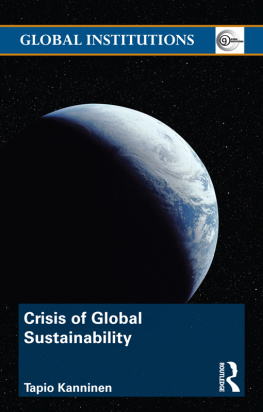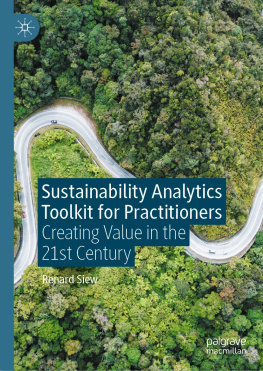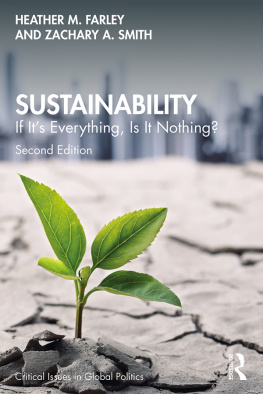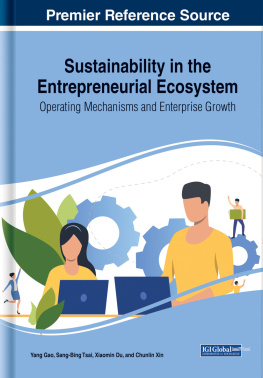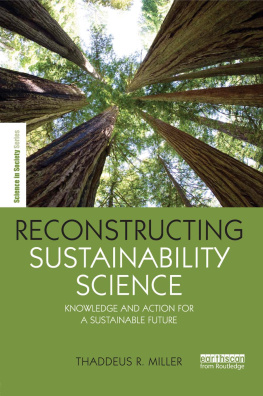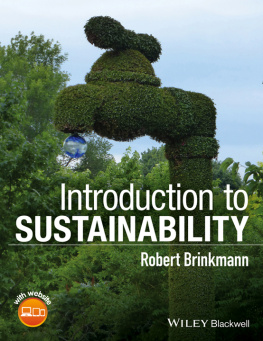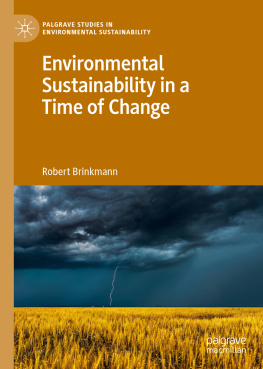Crisis of Global Sustainability
This concise and informative text provides a critical history of the concept of sustainability and the various institutional measures taken to promote, implement and enforce sustainable development, proposing new organizational solutions to deal with the crisis of sustainability.
Crisis of Global Sustainability provides for the first time a compact insider description of the evolution and impact of the Club of Rome, a global think tank that produced a groundbreaking 1972 study,The Limits to Growth, which highlighted the dangers of unrestrained economic growth and possible collapse of the global economy during the first decades of the twenty-first century. With recent research confirming the validity of these concerns, Kanninen asks whether our overarching concept of thinking on world development today should continue to be global sustainability, which implies that we still have enough time to make adjustments in our future policies and action. Or should the main paradigm of our thinking shift to global survivability, a concept that stresses the absolute necessity of immediate and drastic change both in institutions and policies?
Many environmentalists, green politicians and think tanks are speaking today more loudly than ever about the necessity for a major policy, institutional and paradigm change, and this work is essential reading for students and scholars alike.
Tapio Kanninen is Senior Research Fellow at the Ralph Bunche Institute for International Studies at the Graduate Center of The City University of New York and a Co-Director of the Project on Sustainable Global Governance at RBIIS. A long-time UN staff member Dr. Kanninen was Chief of the Policy Planning Unit in the Department of Political Affairs (19982005), Head of the Secretariat of Kofi Annans five Summits with Regional Organizations and worked in a UNEP-funded project at the UN Statistical Office on establishing global framework for environmental statistics.
Routledge Global Institutions Series
Edited by Thomas G. Weiss
The CUNY Graduate Center, New York, USA and Rorden Wilkinson
University of Manchester, UK
About the series
The Global Institutions Series has two streams. Those with blue covers offer comprehensive, accessible, and informative guides to the history, structure, and activities of key international organizations, and introductions to topics of key importance in contemporary global governance. Recognized experts use a similar structure to address the general purpose and rationale for specific organizations along with historical developments, membership, structure, decision-making procedures, key functions, and an annotated bibliography and guide to electronic sources. Those with red covers consist of research monographs and edited collections that advance knowledge about one aspect of global governance; they reflect a wide variety of intellectual orientations, theoretical persuasions, and methodological approaches. Together the two streams provide a coherent and complementary portrait of the problems, prospects, and possibilities confronting global institutions today.
Related titles in the series include:
The Millennium Development Goals and Beyond (2012)
edited by Rorden Wilkinson and David Hulme
Global Think Tanks, Policy Networks, and Governance (2011)
by James G. McGann and Richard Sabatini
Governing Climate Change (2010)
by Peter Newell and Harriet A. Bulkeley
Global Environmental Institutions (2006)
by Elizabeth R. DeSombre
United Nations Global Conferences (2005)
by Michael G. Schechter
Crisis of Global Sustainability
Tapio Kanninen
First published 2013
by Routledge
2 Park Square, Milton Park, Abingdon, Oxon OX14 4RN
Simultaneously published in the USA and Canada
by Routledge
711 Third Avenue, New York, NY 10017
Routledge is an imprint of the Taylor & Francis Group, an informa business
2013 Tapio Kanninen
The right of Tapio Kanninen to be identi fi ed as author of this work has been asserted by him in accordance with the Copyright, Designs and Patent Act 1988.
All rights reserved. No part of this book may be reprinted or reproduced or utilised in any form or by any electronic, mechanical, or other means, now known or hereafter invented, including photocopying and recording, or in any information storage or retrieval system, without permission in writing from the publishers.
Trademark notice: Product or corporate names may be trademarks or registered trademarks, and are used only for identi fi cation and explanation without intent to infringe.
British Library Cataloguing in Publication Data
A catalogue record for this book is available from the British Library
Library of Congress Cataloging in Publication Data
Kanninen, Tapio
A crisis of global sustainability / Tapio Kanninen.
p. cm. (Routledge Global Institutions Series; 74)
Includes bibliographical references and index.
1. Sustainable developmentGovernment policy. 2. Sustainable development. 3. Club of Rome. I. Title.
HC79.E5K355 2013
338.9'27dc23
2012028323
ISBN: 978-0-415-69043-0 (hbk)
ISBN: 978-0-415-69417-9 (pbk)
ISBN: 978-0-203-07186-1 (ebk)
To the memory of O.E. Niitamo, the former director-general of Statistics Finland; Pekka Herlin, the former CEO, chair of the board and owner of the first multinational company with global reach in Finland, the Kone Corporation; and Pentti Malaska, professor in mathematics and statistics, and founder of Finlands Futures Research Centre.
Niitamo and Herlin were my first supervisors. Together with Malaska, they introduced me, as well as the Finnish intellectual community, to the Club of Rome and emerging but still contested limits-to-growth thinking.
Contents
Illustrations
Figures
Tables
Boxes
Foreword
The current volume is the seventy-fourth title in a dynamic series on global institutions. These books provide readers with definitive guides to the most visible aspects of what many of us know as global governance. Remarkable as it may seem, there exist relatively few books that offer in-depth treatments of prominent global bodies, processes, and associated issues, much less an entire series of concise and complementary volumes. Those that do exist are either out of date, inaccessible to the non-specialist reader, or seek to develop a specialized understanding of particular aspects of an institution or process rather than offer an overall account of its functioning and situate it within the increasingly dense global institutional network. Similarly, existing books have often been written in highly technical language or have been crafted in-house and are notoriously self-serving and narrow.
The advent of electronic media has undoubtedly helped research and teaching by making data and primary documents of international organizations more widely available, but it has complicated matters as well. The growing reliance on the Internet and other electronic methods of finding information about key international organizations and processes has served, ironically, to limit the educational and analytical materials to which most readers have ready accessnamely, books. Public relations documents, raw data, and loosely refereed websites do not make for intelligent analysis. Official publications compete with a vast amount of electronically available information, much of which is suspect because of its ideological or self-promoting slant. Paradoxically, a growing range of purportedly independent websites offering analyses of the activities of particular organizations has emerged, but one inadvertent consequence has been to frustrate access to basic, authoritative, readable, critical, and well-researched texts. The market for such has actually been reduced by the ready availability of varying quality electronic materials.

